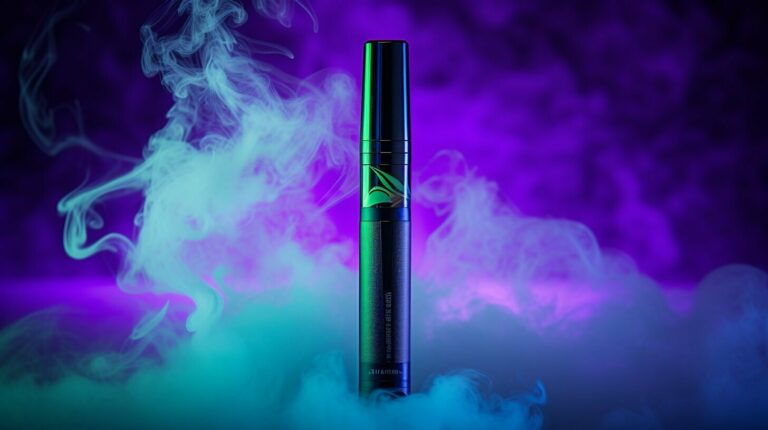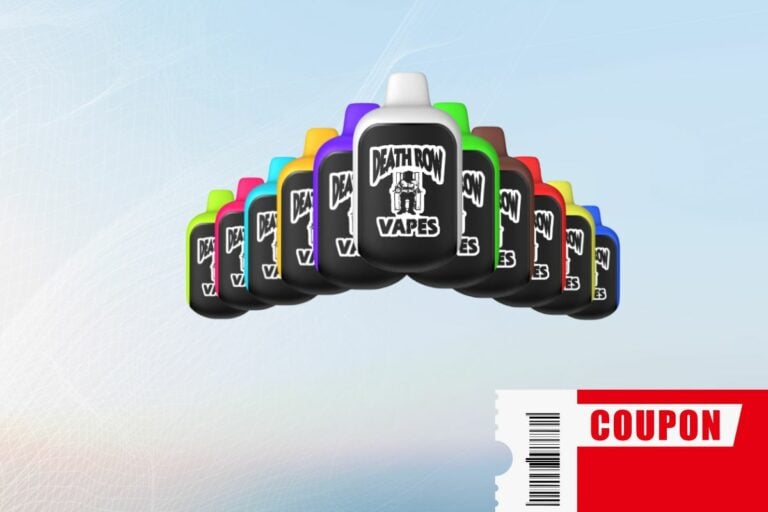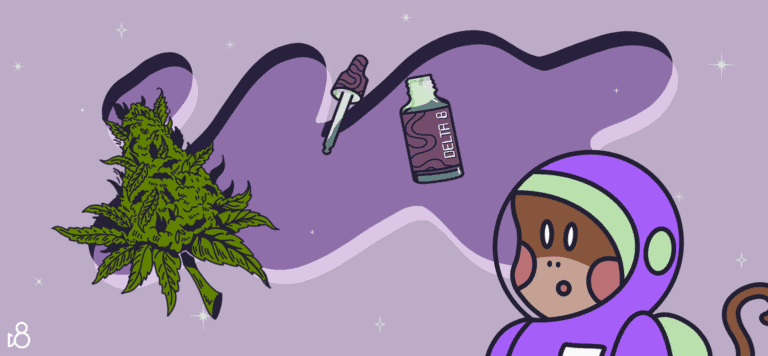Is Delta-11 THC Legal in Missouri? State Law Clarifications
Jumping into the wild world of hemp goodies feels like cracking a secret code, especially with new kids on the block like delta 11. In Missouri, enjoying these bits of joy hinges on what the local and federal playbook says. Curious if delta 11 ticks the legal boxes in your neck of the woods? Figuring out hemp’s dos and don’ts is key. Stick with me, and I’ll guide you through this maze, ensuring you’re always playing it safe.
The legality of hemp was established on a federal level with the passing of the 2018 Farm Bill, which opened doors for the production and sale of hemp and its extracts, including cannabinoids, provided they contain less than 0.3% delta-9-tetrahydrocannabinol (THC). However, the legal status of individual cannabinoids, including delta 11, may vary by state. In Missouri, state laws have been adapting to the evolving landscape of hemp derivatives, and it is crucial to stay informed about the current legal status to ensure compliance.
Table of contents
Legal Status of Delta-11 in Missouri
When exploring the legal landscape of Delta-11 in Missouri, it’s essential to understand the state’s position relative to hemp-derived THC compounds and both state and federal law. As of the date of this article, there is not a significant amount of readily available information specific to Delta-11. However, the 2018 Farm Bill federally legalized hemp products containing less than 0.3% Delta-9 THC on a dry weight basis, which has seen states like Missouri allowing certain hemp derivatives.
Although Missouri has not explicitly mentioned Delta-11, it has legalized Delta-8 THC, another hemp-derived cannabinoid, as long as it meets federal guidelines. Given this, if Delta-11 similarly falls within these regulatory confines, it might currently exist in a legal gray area but could be considered permissible under state law due to its hemp origin.
Here’s a quick rundown of pertinent laws and compounds:
- 2018 Farm Bill: Federally legalizes hemp with <0.3% Delta-9 THC.
- Controlled Substances Act: Does not list Delta-8, Delta-10, or Delta-11 as controlled.
- Missouri State Law: Mirrors federal stance on hemp-derived compounds.
You should note that the absence of a substance from the Controlled Substances Act does not automatically equate to legality in all spheres. Local legislation and legal interpretations are dynamic and can change. Therefore, staying updated on local laws and any developments regarding hemp products and associated cannabinoids is advisable to ensure compliance. For the most accurate information, it might be useful to directly consult legal resources or professionals familiar with this sector.
For a more detailed discourse on the legal nuances surrounding hemp-derived THC compounds, you might want to visit insights on the hemp loophole and legality.
Comparison with Other Cannabinoids
When exploring the legality and characteristics of Delta 11 in Missouri, it’s important to understand how it contrasts with other cannabinoids, such as Delta 8, Delta 9, and Delta 10. Each of these cannabinoids has distinct legal and psychoactive attributes, which can affect your experience and their availability.
Delta 8 vs. Delta 11
Delta 8: Often derived from hemp, Delta 8 is a psychoactive cannabinoid, but typically less potent than Delta 9 THC. In Missouri, Delta 8 is legal under certain conditions, as it falls under the federal definition of hemp with THC levels not exceeding 0.3%.
Delta 11: Comparatively, Delta 11 is less well-known and research on its effects and legal status, specifically in Missouri, is sparse. If Delta 11 is similarly derived from hemp and complies with THC concentration limits, it may share legal parallels with Delta 8. However, the specifics depend on state interpretations of federal law.
Delta 9 vs. Delta 11
Delta 9-THC (Delta-9-tetrahydrocannabinol): This is the primary psychoactive component of cannabis, and its legality varies by state. In Missouri, medicinal use of Delta 9 is permitted with proper licensing, while recreational use remains illegal.
Delta 11: Delta 11, also an isomer of THC, may not be as potent or well-researched as Delta 9, but it’s important to understand that its legal status could be influenced by its method of production and the resultant THC concentration.
Delta 10 and Other Isomers
- Delta 10: Similar to Delta 8, Delta 10 is another hemp-derived isomer of THC. It is less potent than Delta 9 and often marketed for its milder effects. The legal status of Delta 10 in Missouri largely aligns with that of Delta 8, assuming compliance with federal hemp regulations.
- Other Isomers: The cannabinoid family includes a variety of other THC isomers, each with varying degrees of psychoactivity and medicinal potential. While CBD (cannabidiol) is non-psychoactive and widely legal, psychoactive isomers like Delta 8, 9, 10, and potentially 11, are subject to much stricter regulations.
Understanding the complexities of cannabinoids such as THC, CBD, and their isomers like Delta 11 is crucial for navigating their use within Missouri’s legal framework.
Regulations Governing Hemp and Its Derivatives
In navigating the complexities of hemp regulations, it’s essential for you to understand the interplay between federal legislation and state-specific laws in Missouri. This will provide clarity on the legality of delta-11 and other hemp-derived compounds.
2018 Farm Bill Overview
The 2018 Farm Bill represents a significant landmark in hemp legislation. It removed hemp, defined as Cannabis sativa with a delta-9 tetrahydrocannabinol (THC) concentration of not more than 0.3 percent on a dry weight basis, from the list of controlled substances. This change classified industrial hemp as an agricultural commodity, allowing the Department of Agriculture to regulate its production. Consequently, hemp-derived products became federally legal, provided that they adhere to these specifications.
DEA and Federal Regulations
Even though the 2018 Farm Bill federally legalized hemp, the Drug Enforcement Administration (DEA) still regulates the production and distribution of all hemp-derived compounds. It notes that synthetically derived tetrahydrocannabinols remain categorized as Schedule I controlled substances. Therefore, the legality of hemp derivatives hinges on their method of production and their chemical resemblance to controlled substances.
Missouri State Law Specifics
Under Missouri law, the production of hemp and its derivatives is legal if it complies with both state and federal regulations. Your adherence to Missouri’s industrial hemp program ensures legality. The program dictates that hemp must not exceed the legal THC threshold as specified by federal law. Industrial hemp in Missouri is monitored by state legislation, which is in harmony with the 2018 Farm Bill, creating a framework within which growers and producers can operate in alignment with federal guidelines.
Availability and Licensing
When exploring the landscape of Delta-11 availability in Missouri, you need to consider both licensed dispensaries and the options for the online purchase of hemp products. Missouri state law has a significant impact on the supply chain and legality of such compounds.
Licensed Dispensaries in Missouri
In Missouri, you have the opportunity to visit licensed dispensaries for your needs regarding Delta-11 and other related cannabinoids. These dispensaries are regulated to ensure the safety and legitimacy of products sold. You can find a list of licensed dispensaries in the state by visiting Missouri’s official government or health department websites. Be aware that all dispensaries must comply with state law, and any Delta-11 products should be procured through these legal channels.
Online Purchase of Hemp Products
When considering the online purchase of hemp products, including Delta-11, you must verify that the products adhere to both Missouri state law and federal regulations. While purchasing hemp products online can be convenient, ensure that you only buy from reputable sources. Various online platforms provide lab reports and product certifications to prove their legitimacy. Remember, though these products are accessible around the clock, their legality is still governed by the state’s specific cannabis laws.
Consumer Information
As you navigate the legal landscape of cannabinoids in Missouri, it’s crucial to understand the details surrounding products like delta-11. This information will guide you through aspects such as potency, potential medical uses, safety considerations, and implications for drug testing.
Potency and Effects
Delta-11 is a cannabinoid with psychoactive effects that can include euphoria and may vary in potency. If you’re considering hemp-derived products, be aware that while these can legally have THC levels of 0.3% or less, the concentration in individual products can greatly affect your experience.
Medical Conditions and Uses
Research into cannabinoids has shown potential benefits for various medical conditions. If you’re exploring delta-11 for health reasons, know that some individuals use it to help manage symptoms related to anxiety or other conditions. It’s important to consult with a healthcare provider to ensure it’s appropriate for your situation.
Side Effects and Safety
While exploring the benefits, also consider the possible side effects. Common side effects may include dizziness, dry mouth, and changes in appetite. Remember that safety is paramount; always source your products from reputable vendors to ensure quality and compliance with Missouri regulations.
Drug Testing Considerations
Be mindful that the use of hemp-derived products containing THC, such as delta-11, can lead to a positive result on a drug test. Employers often have a zero-tolerance policy, and if you’re subjected to testing, usage could affect your employment. Always consider these implications seriously when using any THC product.
Isomerization and Scientific Aspects
In the realm of cannabis science, isomerization is a chemical reaction that can alter the molecular structure of cannabinoids, producing different compounds like Delta 11 THC. Understanding this process is crucial for both consumers and producers, as it defines the legal and therapeutic attributes of the resulting compounds.
Chemical Composition of Delta 11
Delta 11 THC, also known as 11-hydroxy-THC, is a compound that can be produced through isomerization from other tetrahydrocannabinol molecules. It is chemically distinct from Delta 9 THC, the most commonly known form of THC, due to the location of a double bond on the 11th carbon chain. This slight variation in structure can lead to different potency and effects on your body.
Extraction and Production Methods
As for extraction and production, the transformation of CBD to Delta 11 THC typically involves chemical catalysts and controlled laboratory conditions. You might find that hemp-derived THC is often converted into Delta 11 under acidic conditions or using specific solvents. Reputable producers adhere to strict protocols to ensure the reaction is accurate and to minimize potential impurities. This process of isomerization is essential for the production of Delta 11 and THCV, another cannabinoid that arises from such transformations, marked by their unique properties and potential uses.
Legal Environment in Other States
As you explore the legality of Delta-11 THC in Missouri, it’s imperative to understand how this legality varies across the United States. Each state has its own legal framework for cannabis and related compounds, which often results in a complex patchwork of regulations.
Overview of National Legality
Federally, the United States has designated Delta-9 THC, the main psychoactive component of cannabis, as a Schedule I controlled substance. However, hemp-derived compounds, such as CBD, became federally legal under the Farm Bill of 2018 if they contain less than 0.3% Delta-9 THC by dry weight. The legality of other hemp-derived cannabinoids, including Delta-11 THC, often hinges on this distinction and state-specific legislation.
In some states like Alabama and Wyoming, laws are closely aligned with federal regulations, adhering to the 0.3% THC threshold for hemp-derived products. Meanwhile, states like Idaho and South Dakota have more restrictive policies, where any form of THC may be regulated more stringently. In contrast, states such as Oregon and Vermont have taken steps to regulate these substances in a way that allows for their legal sale within certain parameters.
Comparison with States Like California and Colorado
Both California and Colorado are known for their progressive cannabis policies. In California, cannabis is legal for both medical and recreational use, and this encompasses many THC isomers, albeit with a comprehensive regulatory framework to govern their use, production, and sale.
- California: Legal for recreational and medical use. Regulatory framework governs THC products.
- Colorado: Similar to California, it has a mature legal market for cannabis and hemp-derived products.
Colorado has also legalized cannabis for both uses, which includes various cannabinoids derived from hemp. However, both states have unique regulations that may affect the legality and availability of Delta-11 THC specifically. It’s important to review state legislation regularly as it evolves rapidly in the field of cannabis regulation.
Frequently Asked Questions
In navigating the evolving landscape of cannabinoid legality, it’s essential to have up-to-date and specific information. This section addresses common queries regarding the legal status and implications of using Delta 11 in Missouri.
What is the current legal status of cannabinoid variants like Delta 11 in Missouri?
As of the last update, laws regarding cannabinoids are subject to change, and Delta 11 along with other cannabinoid variants fall into a gray area. It’s crucial to consult current Missouri state legislation or a legal expert for the most accurate legal status.
Can the use of Delta 11 result in a failed drug test?
Yes, the use of Delta 11 may result in a failed drug test. Delta 11 is a THC analog, and most drug tests screen for THC metabolites, which may be present after using various cannabinoids, including Delta 11.
What are the comparative effects of Delta 11 and Delta 9?
Delta 11 is chemically similar to Delta 9, the primary psychoactive component in cannabis. However, the effects of Delta 11 may vary and are not as well-documented as those of Delta 9. Users should approach Delta 11 with awareness that its effects might be unpredictable.
Is there a legal distinction between Delta 11 and Delta 8 in terms of potency?
Legal distinctions often do not directly address potency but rather the molecular structure and sourcing of the compounds. While Delta 8 is federally legal under certain conditions, Delta 11’s legal status is still undetermined in Missouri, and no specific legislation details its potency relative to Delta 8.
Are there any nearby locations where Delta 11 products can be legally purchased?
While the sale of Delta 11 products may be restricted or unregulated in Missouri, neighboring states with different laws may offer legal purchasing options. Always verify the legality in the specific state before purchasing.
What is the potential for intoxication when using Delta 11 versus other cannabinoids?
Delta 11, like Delta 9 THC, has psychoactive properties that can lead to intoxication. The degree of intoxication from Delta 11 can differ from other cannabinoids, and its effects are not as widely studied or understood at this time. Users should proceed with caution.







